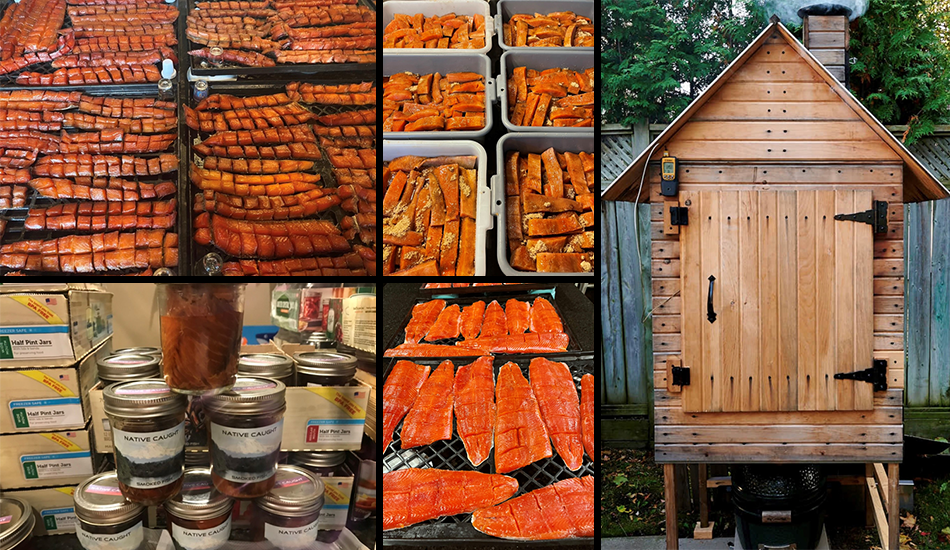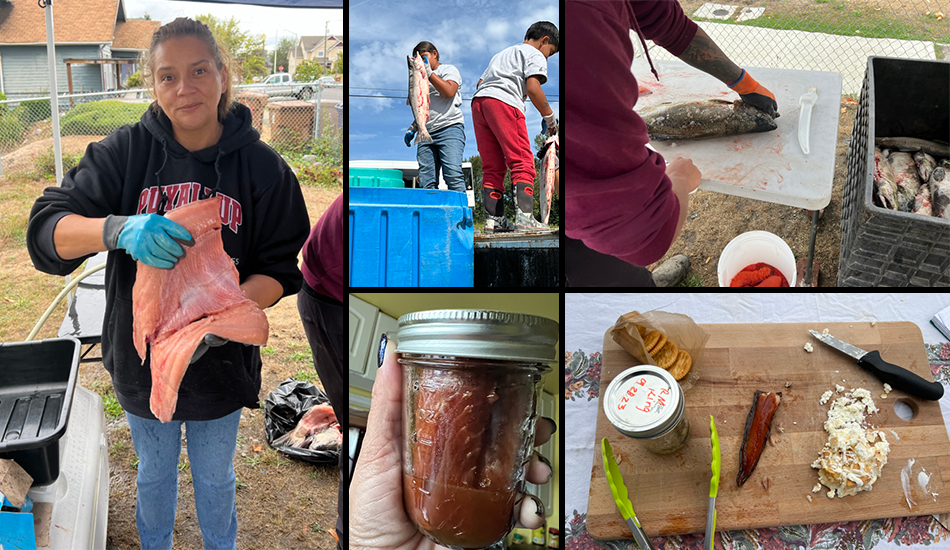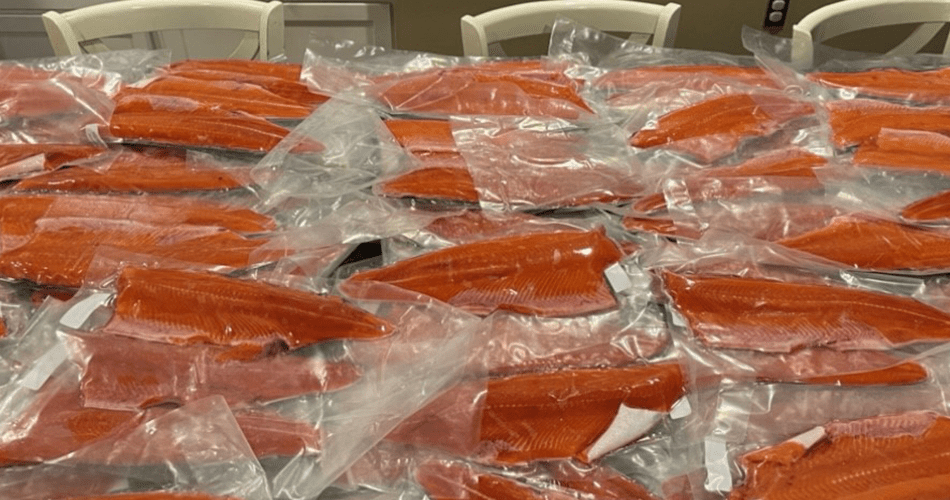By Molly Bryant, Puyallup Tribal News
The Puyallup Tribe is often known as the ‘salmon people’ due to the rich cultural connection to the vital food source. There are many ways to prepare salmon, such as baking, smoking, canning and more. In an interview with Puyallup Tribal members Daryle Barnes and Lucia Earl-Mitchell, they detail their approaches to salmon preparation.
Daryle Barnes
Q: How did you first learn how to prepare salmon and who taught you?
A: It’s in my DNA, right? It’s in all of our DNA. We’re fisher people. One of my earliest memories is catching a monster king at the mouth of Duwamish when I was like five years old. It was like 80 pounds. It was like two times as big as I was. But, as far as fishing, it’s been in my blood, you know. I’ve done it my whole life, smoking fish. I probably started in my early 20s − 20 or 21 years old − learning from other fishermen in our community.
Q: Do you fish for your own salmon that you prepare? Where?
A: I prefer to get my fish out of the bay. I’ll fish the river for tradition with my brother and others that are on the river just to be present and show that we’re still here. But I prefer to get my fish in the bay because they’re chrome-bright and they haven’t touched that fresh water.
Q: What is your preferred method of preparation?
A: I’ve learned to cut the fish a number of different ways. Cutting it in slabs or butterflying it, like how we used to keep the fish whole. Open it from the belly, and leave the belly on.
I learned from some Haida, folks way up north, of different preservation methods and how to cut fish. Cutting it in strips, cutting in steaks; knowing where the bones are at because you want to remove all the bones, which is tedious too, and smoking the fish. You want to make sure all the pin bones are removed the backbones and all the fins and all those things. And then you’d have your brining process which, you know, a traditional way of brining was just salt. They would just salt a fish and do that, but I’ve gotten a little bit fancy over the years and done different things and learned different things, like what a dry brine will do and what a wet brine will do to the fish.
Q: Why is it important to keep these methods alive?
A: Water is life. Salmon is life. Without them, who are we as a people? I’m going to honor them and teach that to anyone that’s willing to listen or learn.
Q: For those interested in preparing salmon, what advice would you give them?
A: Buy good salt. Use the right salt. Cleanliness is absolutely vital in handling any type of seafood, especially if you’re going to can them. You have to be very careful. Use gloves and sanitize. You know, you really got to make sure that you’re safe.

Lucia Earl-Mitchell
Q: How did you first learn how to prepare salmon, and who taught you?
A: My dad, Frank Earl. My family has been lifelong fishermen on the river since the Fishing Wars, and my dad had taught me how to catch and fillet.
Q: Do you fish for your own salmon that you prepare?
A: My son and daughter actually fish for it now. Currently, I am the processor, and my husband does the smoking.
Q: What is your preferred method of preparation?
A: We like everything to be fresh. In preparation right after caught, we lay on ice until cleaning and filleting; and from there, filleting is prepped for smoking. And then it goes straight into a brine for curing. It’s really like a three-day process to smoke fish in order for it to turn out good. You can do a light smoke, which would be like a four-hour smoke, or you can do a heavy smoke − which most people prefer, a heavy smoke − which takes six to eight hours, depending on the size of the cut.
Q: Why is it important to keep these methods alive?
A: The main aspect is keeping the tradition of smoking fish alive. Also, it’s a good survival tool for our people, being able to know that fish don’t run year-round. And so, being able to hear that need to make it last longer than a couple of days is really important. So, the longevity of the fish that we have something to eat year-round and then, of course, just keeping the history of our people, being fish people, and the nutrition of the fish for body, mind and spirit.
Q: For those interested in preparing salmon, what advice would you give them?
A: Get some gloves. The fish is really slimy when it comes out fresh, and it’s also bloody. Good gear is always important in fishing. Otherwise, you tend to throw away your clothes.






